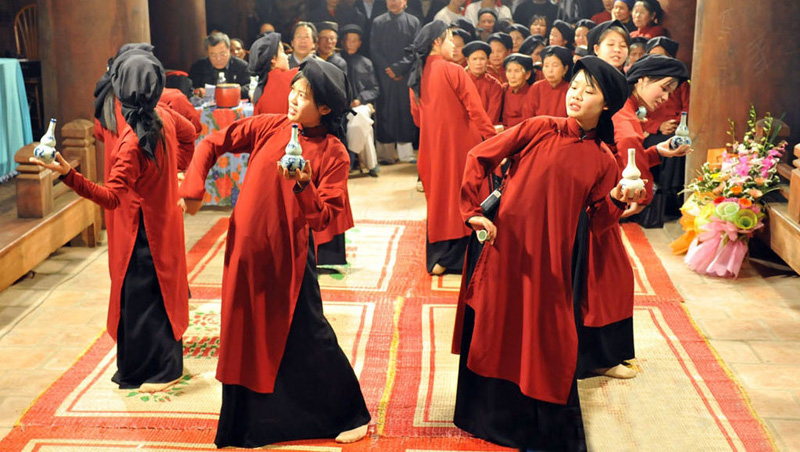


|
The decision was made at a meeting of the Intergovernmental Committee for the Safeguarding of the Intangible Cultural Heritage in the Republic of Korea, on December 8. In November 2011, xoan singing of Phu Tho province was listed by the UN’s cultural body as an element of heritage in need of urgent safeguarding as it was scarcely practised by the locals. Since then, a concerted effort has been made to revive the art, with measures ranging from promoting community awareness and participation to teaching the art to schoolchildren and restoring the temples where xoan singing is usually performed. The action taken by both the local communities and the government has helped xoan singing to avoid the risk of disappearing into oblivion. In 2009, there were roughly just 100 practitioners, more than half of whom were over 60, belonging to four original guilds that performed occasionally but today these guilds have nearly 200 members with the average age of 35. Eight years ago, among the most senior 31 practitioners, aged between 80 and 104, only seven were able to perform and teach the ancient versions of xoan songs but now that number has increased to 62. The total members of xoan clubs across Phu Tho province have also reached into the thousands. Xoan singing, also known by other names, such as hat cua dinh and hat tho, is associated with the worship of Vietnam’s legendary founders the Hung Kings, a practice also recognised by UNESCO as world cultural heritage. Usually performed at the lunar New Year when spring arrives, the songs are sung to celebrate the Hung Kings, national heroes and ancestors; glorify nature and people; and express wishes about life and romantic love. In addition to singing songs of praise, the art also incorporates dances with the use of props such as paper fans and alcohol bottles. At the meeting of the Intergovernmental Committee for the Safeguarding of the Intangible Cultural Heritage, UNESCO also inscribed bai choi, a folklore style of singing, which is popular in central Vietnam, as an intangible cultural heritage of humanity. With the addition of xoan and bai choi, Vietnam now has 11 elements of intangible cultural heritage which have been recognised by the UN’s cultural agency. |
Source: NDO